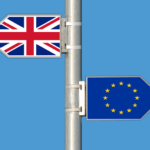The Commission is presenting revised rules that will make it cheaper, quicker and more predictable to protect industrial designs across the EU. An industrial design constitutes the outer appearance of a product characterised by its lines, contours or shape.
The proposals for a revised Regulation and Directive on industrial designs modernise the existing Community design framework and parallel national design regimes, created and harmonised 20 years ago. The revised rules will help to further improve the conditions for businesses to innovate. At the same time, the rules also introduce a more balanced approach to design protection. This ensures that designs can be reproduced for spare parts, allowing consumers more choice in repairing complex products such as cars in particular.

Intellectual property in the 20th century (1900 – 1961)
|
The two proposals will:
- Simplify and streamline the procedure for the EU-wide registration of a design: By making it easier to present designs in an application for registration (for instance by submitting video files) or combine more than one design in one application, as well as by lowering the fees to be paid for the first ten years of protection, the new rules will make registered Community design protection more accessible, efficient and affordable in particular for individual designers and SMEs.
- Harmonise procedures and ensure complementarity with national design systems: The new framework aims to ensure greater complementarity among EU level and national design protection rules, for instance on requirements for registering designs or simplifying rules for invalidating registered designs. This will help to create a level playing field for businesses across Europe.
- Allow reproducing original designs for repair purposes of complex products: By introducing an EU-wide ‘repair clause’ into the Design Directive, the new rules will help to open up and increase competition in the spare parts market. This is particularly important in the car repair sector, where it should become legally possible in all EU countries to reproduce identical “must match” car body parts for repair to restore its original appearance. The proposed ‘repair clause’ should have instant legal effect only for future designs while designs already granted protection should remain covered during a transitional period of ten years.

The General Court of the European Union annuls the decision taken by the Commission regarding the Irish tax rulings in favour of Apple
|
Background
This proposals follow the Intellectual Property Action Plan adopted in November 2020, where the Commission announced that it would revise the EU legislation on design protection, following the successful reform of the EU trade mark legislation. This built on results of a comprehensive evaluation of the latter, which showed that, although design protection systems in the EU are functioning well overall, there are shortcomings to be addressed. It further follows calls from stakeholders, the Council and the European Parliament, asking the Commission to modernise and further harmonise the legislation on industrial designs in the EU.
More information: European Commission







Leave a Reply